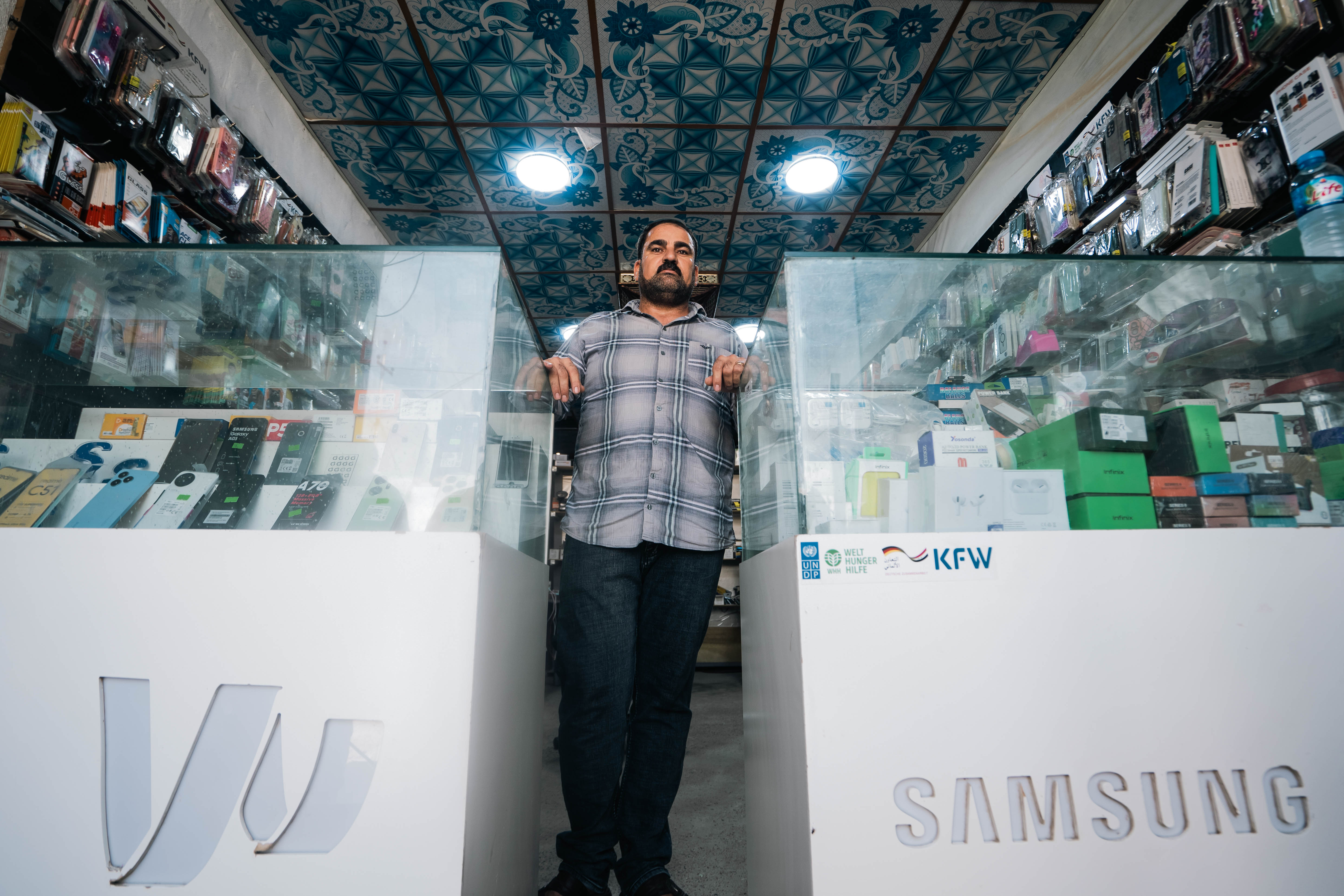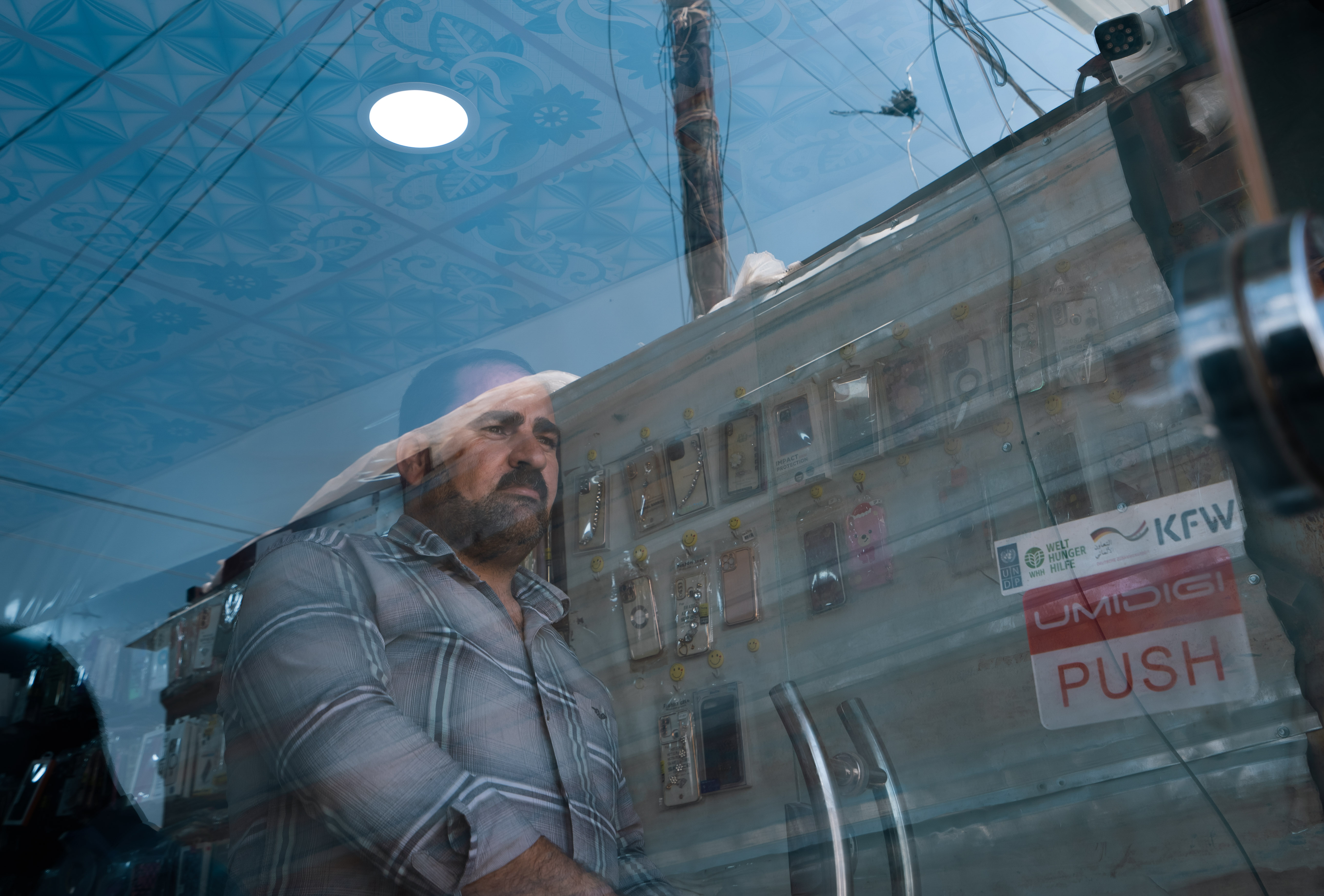Ali Younes’ Success Story in Sinuni: A Journey from Displacement to Entrepreneurship
September 8, 2024

Meet Ali Younes from Sinuni in Ninawah Governorate, an entrepreneur who transformed adversity into opportunity. Before ISIL's invasion, Ali ran a thriving mobile phone repair shop, serving his community with pride. But when ISIL seized control of the region, everything changed. Ali and his family were forced to flee their home, seeking refuge in different areas, far from the life they once knew.
During their displacement, Ali continued to work in various phone repair shops, honing his skills and holding onto the hope of one day rebuilding his own business. Despite the hardships, Ali never lost sight of his dream, determined to turn his family's struggle into a story of resilience and renewal.


.
Turning Challenges into Opportunities
Ali didn’t let these challenges defeat him. Instead, he viewed them as opportunities for learning and growth. When the region was liberated and stability returned, Ali seized the chance to rebuild his life. He enrolled in a business development training course offered by the United Nations Development Programme (UNDP). The seven-day course provided him with essential business management skills, laying the foundation for his next steps.
With newfound knowledge and a financial grant from UNDP, Ali made a bold investment in advanced laser equipment, becoming the first in the region to own such technology. This cutting-edge tool enabled him to repair phones with unparalleled precision and speed, setting his shop apart from others in the area. Ali’s determination to innovate not only revived his business but also positioned him as a leader in his community, turning his adversity into a story of triumph.


.
Ali’s Shop: A Story of Success and Distinction
With the precision and advanced services his shop offered, Ali quickly earned a reputation for excellence. The growing demand for his expertise led him to hire an additional worker to help manage the influx of customers. In a short period, Ali built a loyal customer base and significantly increased his family's income.
“Today, my shop is a special place for phone repairs. Through my profits, I can now cover all my family’s expenses, including rent,” says Ali. His shop now enjoys a monthly income of approximately 1,500,000 Iraqi dinars (around $1,000), surpassing what he earned before ISIS took control.
Ali continues to look towards the future, striving to develop his shop further by investing in more advanced equipment. His commitment to excellence not only supports his family but also benefits the community by providing efficient and high-quality phone repair services, making his shop a cornerstone of local commerce.

Future Aspirations
With the support and training he received, Ali is now looking forward to a bright future. He plans to expand his shop and invest in more advanced equipment, believing that hard work and continuous development are the keys to lasting success. Ali aspires to provide the best possible services to the people of his region, aiming to solidify his position as one of the most prominent entrepreneurs in Sinuni.
Ali Younes’ journey from displacement to entrepreneurship is a powerful testament to resilience and the transformative impact of support programs in rebuilding lives and communities. His story is an inspiration to many, both in the region and beyond.
About the Project: Supporting Community Revival
This project emerged after the liberation of areas from ISIL control, as displaced people began returning to their homes, often to communities with limited facilities and job opportunities. The program focuses on supporting small and medium enterprises (SMEs), offering returning families the opportunity to earn income, produce, and empower individuals.
To date, over 1,181 small and medium enterprises have been supported with training, coaching, in-kind assistance, or grants, like those received by Ali, this project is implemented by UNDP's Building Resilience through Employment Promotion (BREP) project, in collaboration with Welthungerhilfe (WHH) in Iraq, and funded by the Federal Ministry for Economic Cooperation and Development (BMZ) through KfW Development Bank.

 Locations
Locations